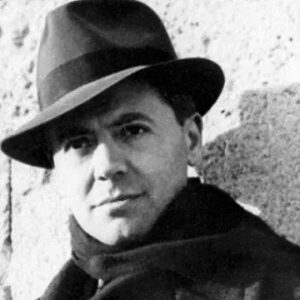During World War II, Jean Moulin was a key member of the French Resistance. He is remembered as a hero of the Resistance movement and a martyr who died for a cause he believed in. It is said that he united the French partisan activities against German occupation under Charles de Gaulle. He was a very brave and courageous person who became a legend in French history after being tortured and killed by the Gestapo, Nazi Germany’s secret police. He was the son of a history professor, and he joined the army in 1918, but World War I ended before he could see any action. Then he went to work for the government and quickly moved up until he was the youngest prefect in all of France, in the Department of Eure-et-Loire. He was a lawyer by trade, but he also liked to draw and did political cartoons for a newspaper. He had a strong sense of right and wrong, so he wouldn’t sign a German document that wrongly said Senegalese French Army troops killed civilians. When he said no, the Germans arrested him and tortured him. After that, he joined the French resistance. He was a leader in putting together the Mouvements Unis de la Résistance, which was made up of all the French resistance groups that were spread out (MUR). But in the end, the Gestapo caught him and he died under mysterious circumstances.
Early years and childhood
Jean Moulin was born in Béziers, France, on June 20, 1899. Antonin Moulin, his father, was a history professor and a strong Republican. His father was also president of the local chapter of the League of Rights of Men (La Ligue des Droits de l’Homme) and was active in the local Radical Socialist Party.
Jean had a brother and a sister, and they all grew up happily and peacefully. Because of his father’s influence, he also became a strong Republican.
In 1917, he started going to the Law Institute of Montpellier and working at the Hérault Prefecture.
In April 1918, he was called up by the French Army and trained as a military engineer. He was in the 2nd Engineer Regiment and also worked as a carpenter and a telephone operator. But he never got to fight as a soldier, and he felt bad about that for a long time.
Jean Moulin’s Career
He got out of the army in November 1919, and then he was put in for the job of the prefect of Montpellier. He also went back to school and got his law degree in 1921.
He was very good at managing people and moved quickly up the ranks as a civil servant in the prefecture. In 1922, he was named chef de cabinet to the deputy of Savoie, and in 1925, he became the sous-préfet of Albertville. At the time, he was France’s youngest deputy mayor.
He became friends with Pierre Cot, a radical socialist politician. In 1932, when Paul Doumer was president, Cot asked him to be the chef adjoint in his Cabinet of Foreign Affairs. The next year, he was given the extra job of being the deputy mayor of Thonon-Les-Bains.
In 1937, he was named the préfet of the département of Aveyron, which was based in the commune of Rodez. This made him the youngest perfect in France.
World War II was in full swing in 1940 when German forces occupied his region and started doing horrible things to the French. The Germans then tried to “prove” that these crimes were done by Senegalese soldiers. They tried to get Jean Moulin to sign a document that falsely blamed Senegalese French Army troops for killing civilians.
Moulin refused because he had a strong sense of right and wrong. The Germans then took him, prisoner. He tried to kill himself by cutting his own throat, but he didn’t succeed. Later, he was fired from his job, so he joined the French resistance movement against the Germans.
He then ran away to England, where he met General Charles de Gaulle, who was in charge of Free France. De Gaulle gave him the job of bringing together all the different resistance groups. So, Moulin met with Henri Frenay, Jean-Pierre Levy, Pierre Villon, and Emmanuel d’Astier, among other French leaders.
He then convinced the eight largest resistance groups to work together and form the Conseil National de la Resistance (CNR). At de Gaulle’s request, Jean Moulin became the chairman of this new group and led it. The first meeting of the two groups was in May 1943.
On June 21, 1943, the Gestapo arrested him and other resistance leaders while they were meeting at the home of Dr. Frédéric Dugoujon in Caluire-et-Cuire. The leaders of the Resistance were sent to Lyon’s Montluc Prison, where Moulin was held until the start of July.
Klaus Barbie, who was in charge of the Gestapo, questioned him for a long time and tortured him badly when he wouldn’t say anything useful. The Gestapo made torture even worse, but Jean Moulin stayed loyal to his country and never told anyone anything.
Personal History and Legacies
In September 1926, he married Marguerite Cerruti, but their marriage didn’t last long. In 1928, they got a divorce.
He was a very important member of the French resistance. When the Gestapo caught him, they tortured him very badly. But because he was a man of strong beliefs, he refused to tell his captors anything important.
On July 8, 1943, he was taken to Germany by train when he either hurt himself during the torture or killed himself. No one could figure out what really killed him.
When he died, he became a hero of the Resistance. He is remembered as a true patriot and a man with a lot of courage and strength. In France, he has a lot of streets, schools, and squares named after him.
Estimated Net worth
Unknown.


